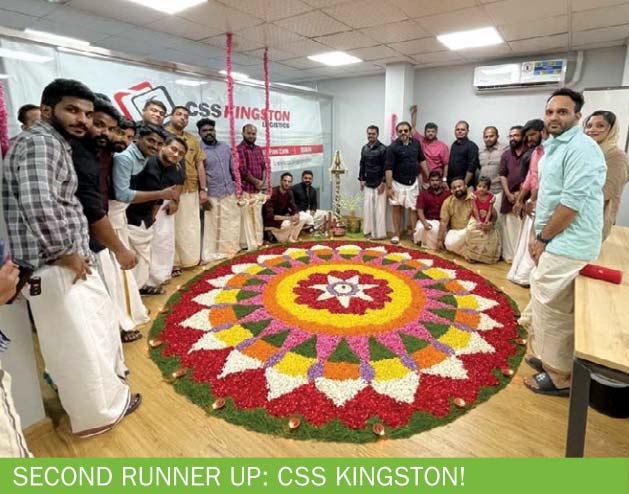Hosting the World Expo is the most ambitious project for the UAE. The event is also at the heart of the UAE’s plans for diversifying its economy away from Oil. Expo 2020 is special as it is the first with so many countries represented physically and digitally. Dubai is now the melting pot of the world. The Expo 2020 also represents the unique opportunity to experience the post-pandemic world.
Dubai Gearing Up for Expo 2020
Held every five years, the World Expo exhibitions see hundreds of countries using pavilions to show off the latest in architecture and technology. Before the pandemic forced the event to be postponed, organisers had expected 25 million visits during the course of the six-month international fair. It will now run from 1 October to 31 March 2022.
However, despite restrictions on travel, and the recent lockdowns in some parts of Europe, Reem Al-Hashimi, Managing Director general of the Expo 2020, expects a crowd turnout to match the pre-pandemic expectations. She says, “The world has gone through these galactical shifts over the last year but now with vaccines being rolled out, we believe that situation will settle by October, and that the situation will be far more positive by then.”
An Optimistic Outlook
It is an optimistic forecast for an event that relies on tourism, when most of the world has cutdown on international travel. But the various in-person conferences and trade shows held in the city over the last few months has made organisers more hopeful.
Expo 2020 is being billed as the biggest event to be held in the Arab world. For the UAE, the showpiece event comes at a time when it is trying to recover from one of its worst recessions in five decades. Last year, the economy contracted by 6.6% even as the government announced a series of reforms to attract investment and help businesses. Some of those steps have started to show results with the International Monetary Fund upgrading the growth outlook for the UAE to 3.1% for 2021.
The authorities are pinning their hopes on the World Expo to attract tourists in large numbers that would help accelerate economic recovery. Billions of dollars have been poured into the project since the UAE won the bid to organize the international fair in 2013.
Dubai World Expo: Key Facts
- More than 190 countries are taking part, in the first such event to be held in the Middle East
- These countries will participate in the Expo – showcasing innovations around the themes of sustainability, mobility and opportunity.
- The Expo 2020 is expected to boost Dubai’s economy by $33bn (£24bn) and to create up to 300,000 jobs
- The site covers 4.3sq km, or 613 football pitches, and the Expo site will have its own metro station
- Uber is said to be testing flying cars during the event
- Some 90% of the materials used in construction will then be used to create permanent buildings afterwards
- The spectacle is particularly crucial for the Middle East’s financial hub – Dubai – as its economic model relies heavily on sectors that are driven by consumer spending, like hospitality, luxury retail and travel.
While most experts think it might be a challenge to achieve 25 million visits, there is a broad consensus that the millions who will attend the event will certainly have a significant impact on the economy. “Even if the event is partially successful it has the potential of reviving the economy and taking it back to the pre-pandemic levels,” says Scott Livermore, chief economist for the Middle East at Oxford Economics.
In February, the Tokyo 2020 (Olympics) committee announced that they would go ahead with the event in July regardless of the how Covid-19 situation evolves. Like the Japanese, the Expo 2020 organisers also had no plans of postponing or cancelling the event. “We are applying all the necessary safety measures as mandated by the WHO and following other best practices to allow the event to take place in a safe environment,” says Ms Al-Hashimi.
She also adds that there is a need for people to converge to discuss the next steps to tackle global challenges like the Covid-19 pandemic, and the Expo offers that platform. Dubai also has been one of the few cities to keep its economy open since July last year when most of the world was under lockdown.
Covid -19 Precautions
Despite the recent wave, the UAE has managed to roll out the vaccines at a rapid pace, with more than 75% of the population inoculated. The UAE aims to be one of the first countries to vaccinate most of its population and return to complete normality. This would also help in positioning it as a safe tourist destination. With UAE reaching the status as being the most vaccinated country, the organisers are hoping for the large turnout for the event.
“If the UAE is able to achieve herd immunity, then that would be a big positive for the Expo as it would be able to attract many more tourists, especially during the second half of the event,” says Mr. Livermore.
Role of Expo 2020
Mega-event Expo 2020 offers an international meeting point to not only 190-plus participating countries but also businesses, multilateral organisations and educational institutions. To catalyse entrepreneurial partnerships, Expo 2020’s official business integrator partner Dubai Chamber of Commerce and Industry has launched an introductory video series featuring the expectations of UAE business leaders titled ‘En Route To The Expo.’
Dubai Chamber of Commerce & Industry, A Catalyst for Cross-Border Partnerships
“Expo 2020 and DCCI are rallying the local and international business community to connect, network and together find cutting-edge solutions to encourage global partnerships and FDI flows in a post-pandemic world,” says Marjan Faraidooni, Chief Experience Officer of Expo 2020 Dubai.
She highlights the rota of business programming planned by the DCCI, which includes a series of thematic business forums designed and curated together with participating countries and partners that discuss challenges as well as opportunities for both the local and global business communities.
“The Chamber is also bringing on board three of its flagship global business forums – the Global Business Forum Africa, Global Business Forum ASEAN (Association of Southeast Asian Nations) and Global Business Forum Latin America,” adds Faraidooni.
Dubai Businesses to Reap Economic Benefits
Hassan Al Hashemi, Vice President of International Relations at the DCCI, says that business in Dubai is set to undergo a quantum leap with the city hosting Expo 2020, adding that the mega-event will highlight the economic potential of the UAE and other markets of opportunity.
As the official business partner to Expo 2020, the DCCI will play a pivotal role in creating new connections and fostering cross-border collaboration. The Chamber will provide an ideal platform for UAE companies and their international counterparts to network at its dedicated on-site facility at Expo 2020. In addition, it will host and support several high-profile events during the mega event, which aim to expand Dubai’s economic cooperation with promising markets around the world,” Al Hashemi added.
In a post-pandemic era, Expo 2020 will become a prime example of how major international forums can be held safely and successfully. “It will be the first major global event that uses technology and a hybrid format to navigate the obstacles presented by a situation that is unprecedented in modern times,” says Al Hashemi. “Dubai Chamber of Commerce & Industry is fully committed to ensuring that business functions run smoothly at Expo 2020.”
The non-profit public entity will play an essential role in catalysing partnerships for the global business community throughout the six-month event.








 Shipping Line Behavior
Shipping Line Behavior The last year 2020 accelerated the concept of “Work from Home” and helped to realize that even the Civil Court Proceedings can also be done virtually. With the pandemic, the Court proceedings had to switch completely to virtual hearings, without any Judges, Lawyers, or the Parties to the suit, being personally present in the courtroom. Many countries even introduced new regulations or rules to regulate remote hearing.
The last year 2020 accelerated the concept of “Work from Home” and helped to realize that even the Civil Court Proceedings can also be done virtually. With the pandemic, the Court proceedings had to switch completely to virtual hearings, without any Judges, Lawyers, or the Parties to the suit, being personally present in the courtroom. Many countries even introduced new regulations or rules to regulate remote hearing.



